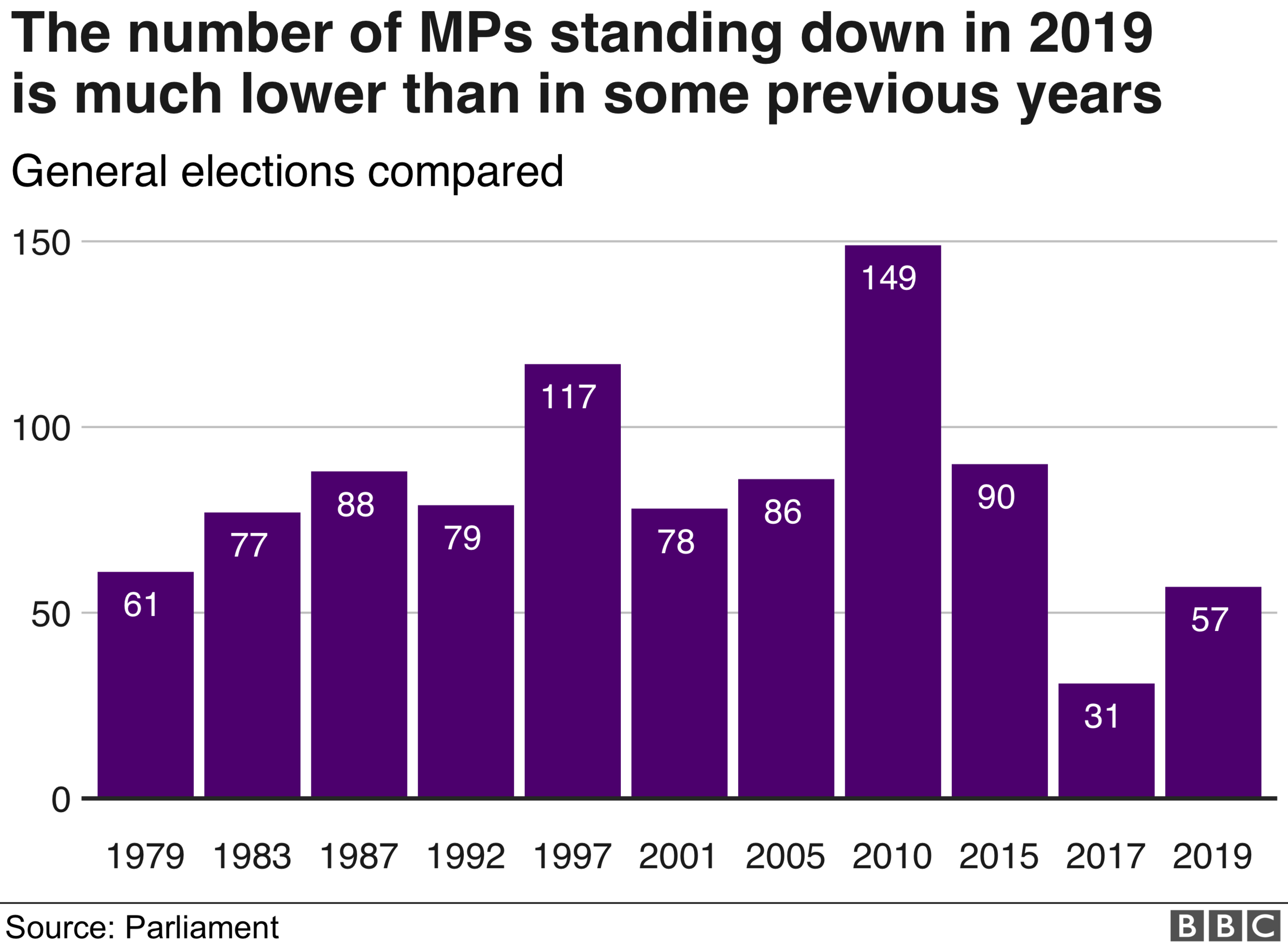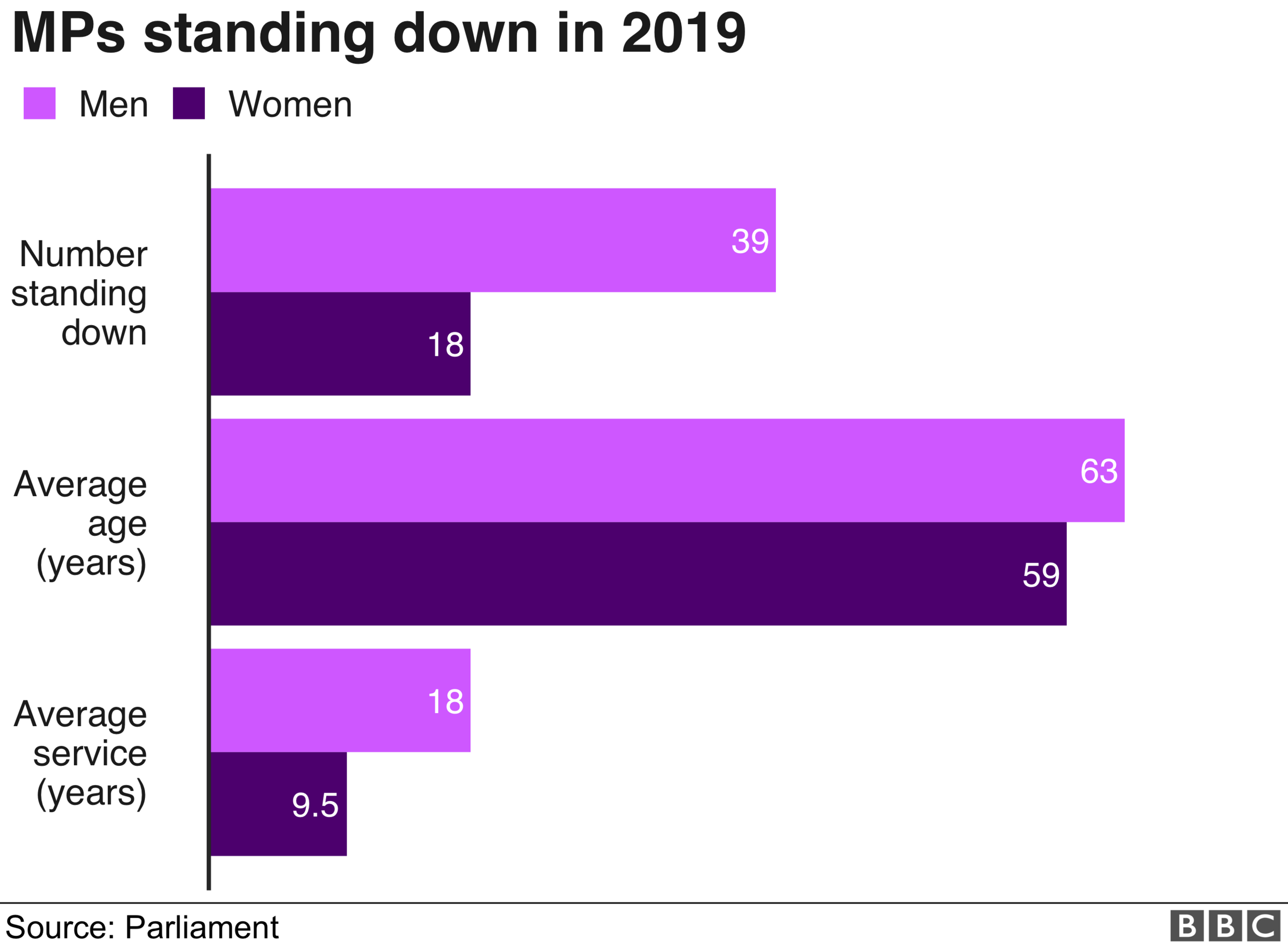Women MPs say abuse forcing them from politics
- Published
Nicky Morgan: "Every day you open emails to more abuse"
MPs have increasingly become the target of abuse - and some women politicians say they are bearing the brunt of it.
Labour MP Rachel Reeves - who has written a history of women in Parliament - recalls how the first female MP to take up her seat, Nancy Astor, had to push past jeering male colleagues in the chamber to get there.
But the abuse has intensified in recent years, with death and rape threats "a daily occurrence for women MPs", she says, external.
More than 50 MPs have announced they are standing down at the next general election on 12 December- 18 of them female.
But a number of high-profile women have cited abuse as a factor in their decision.
Culture Secretary Nicky Morgan has been subject to a number of threats, including phone calls from 64-year-old Robert Vidler telling her her "days were numbered". He was jailed for 18 weeks.
She said being an MP had had a "clear impact" on her family, and the abuse had "changed enormously" in the past decade "because of how strongly people feel about the current political situation" - in a time when Brexit deliberations have dominated.
But the minister is far from alone in her experience.
Liberal Democrat - and former Tory - MP Heidi Allen, is also stepping down due to the abuse she has faced.
This includes death threats related to her stance on Brexit sent from a fake email address by 51-year-old Jarod Kirkman. He was later jailed for 42 weeks.
In a letter to her constituents, the Remain campaigner said: "Nobody in any job should have to put up with threats, aggressive emails, being shouted at in the street, sworn at on social media, nor have to install panic alarms at home.
"Of course public scrutiny is to be expected, but lines are all too often regularly crossed and the effect is utterly dehumanising."
'Don't let them win'
The abuse is not just targeted at those who want to stay in the EU.
Tory Brexiteer Andrea Jenkyns has had a raft of abuse, from emails threatening to sexually mutilate her through to suicide-related graffiti at her constituency office.
"The ones that really get to me are the ones that call me a bad mother," she said.
But Ms Jenkyns is still standing for her Morley and Outwood seat.
"I am here to do a job and I love representing my area," she said. "I am dealing with a number of local cases, including a terrible one to do with child abuse, so that does keep you grounded.
"But if I gave up, I would let them win that way."
Andrea Jenkyns raised the issue of abuse at Prime Minister's Questions
Lib Dem MP Sarah Wollaston - who left the Conservatives at the same time as Ms Allen - has been advised by police not to advertise her whereabouts, putting an end to public meetings in her constituency.
But like Ms Jenkyns, she also plans to run again in her Totnes seat, telling BBC Radio 4's Today programme: "You can't respond to [abuse] by giving in to it. You have to confront it and keep going."
She said her colleagues had suffered even more serious abuse.
Ms Wollaston said: "I look around my select committee table... and I look at [Labour MP] Rosie Cooper, who has had actual plots to murder her, [Lib Dem MP] Luciana Berger, who has several people in prison for threats to her and her family, and I have had threats and one person jailed for threats to myself and others."
Labour's Rosie Cooper tells MPs about a plot to kill her by a far-right man
Labour's Tulip Siddiq has added her concerns:
Allow X content?
This article contains content provided by X. We ask for your permission before anything is loaded, as they may be using cookies and other technologies. You may want to read X’s cookie policy, external and privacy policy, external before accepting. To view this content choose ‘accept and continue’.
Labour's shadow home secretary Diane Abbott knows the issue more than most.
A study by Amnesty International showed she received almost half of of all abusive tweets that were sent to female MPs in the run up to the last election in 2017.
Despite that, she will be a leading voice in her party's election campaign.
She told Today: "It is not about weathering [the abuse], it's just about putting one foot in front of the other."
A spokesman for the House of Commons said it worked closely with local police forces on the safety and security of MPs, and kept arrangements under constant review.

The facts and figures of who is standing down
By Laurence Sleator, BBC political research unit
Ahead of the 2019 election, 57 MPs so far have announced they won't be standing.
This figure is quite small compared to previous elections, with 149 stepping aside in 2010 and 117 in 1997. But the period since the last election in 2017 is not long.
Some have questioned, whether this time it is skewed more towards women.

Tory Chairman James Cleverly retweeted statistics showing 32% of MPs standing down were female - in line with the current overall representation in the House of Commons, where 32% of the 650 MPs are women.
The figure was right. Of the total leaving, 18 are female - which can be rounded up to 32% or down to 31%.
But Lib Dem Sarah Wollaston said those women leaving the Conservatives were much younger and had spent less time as MPs in the Commons - compared to the older men who were at the age of retirement. And that they were leaving sooner because of the abuse.
The average age of the male MPs leaving the Commons is 63, compared to 59 for females.
It is true, however, that of the Conservative women departing they are on average younger than this - at 51.
The average length of service for the Conservative male MP was almost 18 years, compared to 9 and a half for female MPs.

Of the MPs standing down, 89% voted to Remain in the referendum.
And of the five who voted Leave, three were Labour MPs.
